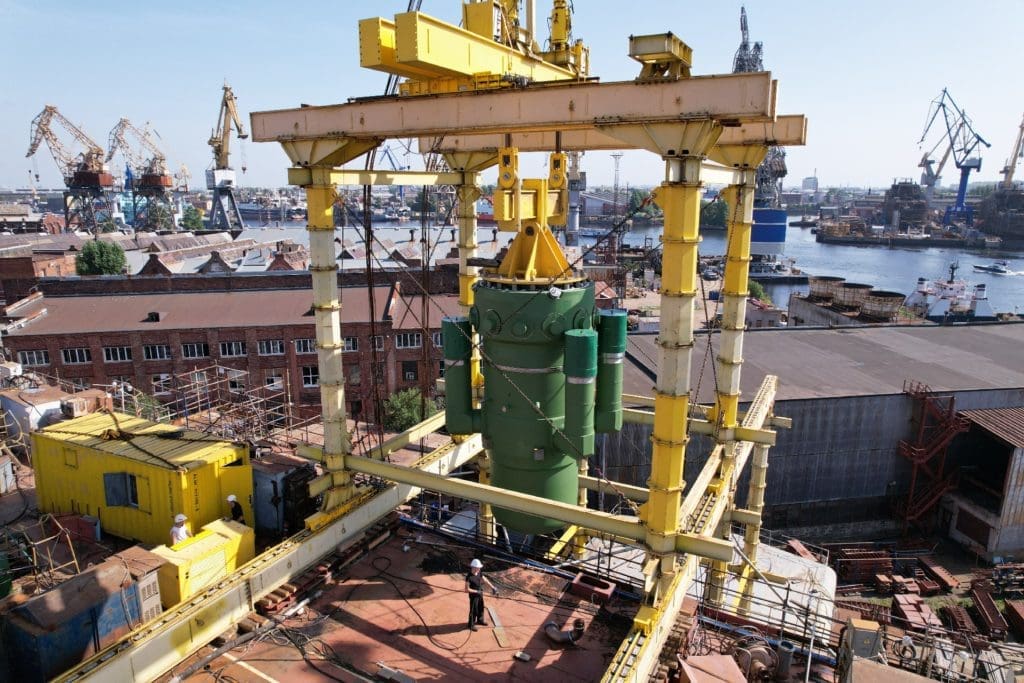Despite a controversial past, adoption of nuclear energy is back on the menu for the South African government and Russia’s state nuclear power company, Rosatom, says that it can be a “potential partner” to the country in these efforts.
Minister of Electricity and Energy, Dr Kgosientsho Ramokgopa last year shared ambitions that South Africa would be looking into more nuclear power to bolster the grid in efforts to keep loadshedding at bay.
“We need to ensure that we anchor the baseload and nuclear is an important part of that intervention,” the minister said in late 2024. For most of 2024, the South African government was looking to implement a framework for a procurement process to begin bringing in partners to help establish more nuclear power stations in the country.
South Africa currently has the only operating nuclear power station on the continent, with Koeberg power station in the Western Cape. It continues to be one of Eskom’s most reliable and best producing stations, despite significant downtime due to maintenance in recent years. It was built in 1976.
Rosatom’s case for nuclear energy adoption locally
“Historically reliant on coal, South Africa’s aging infrastructure and environmental commitments necessitate a transition to cleaner and more reliable energy sources,” Russia’s Rosatom tells Hypertext.
“Nuclear power emerges as a viable solution, offering the reliability, scalability, and economic benefits essential for the country’s future energy security.”
“Nuclear energy offers a stable baseload power supply, crucial for a country grappling with energy shortages. Unlike wind and solar, which depend on weather conditions, nuclear power provides continuous electricity generation, ensuring grid stability,” it explains, adding that advances in technology have led to the creation of “affordable” and modular nuclear energy generation facilities.
Rosatom offers small modular reactors (SMRs) which it says could be compelling for South Africa, especially with Ramakgopa’s assertions that the country would invest in nuclear power only “at the scale and speed that we can afford.”
“These reactors require lower initial investments and shorter construction times than traditional large-scale nuclear plants, making them an attractive option for a country balancing economic constraints with energy security needs,” it continues.

Is nuclear worth it for South Africa?
Other sources, like the Institute for Energy Economic and Financial Analysis, still say that small modular reactors continue to cost too much, don’t produce enough power fast enough and there are risks involved.
Usually, SMRs produce around 300MW per reactor, with some pricing estimates for certain developers sitting at more than $5 billion all-in price. For context, a single stage of loadshedding means that South Africa lacks more than 1 000MW of electricity in its grid.
Instead, the institute believes better investments will come in the way of renewable energy technologies, like wind and solar PV, which are cheaper and more readily available.
“Investment in SMRs will take resources away from carbon-free and lower-cost renewable technologies that are available today and can push the transition from fossil fuels forward significantly in the coming 10 years,” it says.
If modular reactors are not the go-to, Rosatom can still help South Africa build a new nuclear power plant. The company is building a 4 800MW nuclear power plant in Egypt which, when completed, will be the largest of its kind in Africa.
“Its involvement in Africa demonstrates company’s capability to build large-scale nuclear infrastructure in developing economies, making it a strong potential partner for South Africa,” it says.
However, that’s if the Russian firm can bypass historical controversies, including President Jacob Zuma’s scandalous secret nuclear deal he attempted to sign with Rosatom in 2014, which allegedly could have crippled the South African economy if signed.

